Spotlight Series: Chaco (Chapeltown Cohousing)
This is the first in Cwmpas’ Communities Creating Homes team’s Spotlight series, which showcases inspiring Community-Led Housing (CLH) initiatives from around the world—past and present—with a focus on projects led by Black, Asian, and Ethnic minority communities. Our goal is to raise awareness, celebrate diversity, and show that CLH is an inclusive and viable housing option for everyone, regardless of background.
Introducing Chaco: An Intentional Community Housing Project
Chapeltown Cohousing (Chaco) is an intentional CLH project in the heart of Chapeltown, Leeds — a vibrant and multicultural neighbourhood. Chaco is built on principles of inclusivity, sustainability, and mutual support.
Image: Claire Wood Photography
We spoke with Bill Phelps and Yael Arbell regarding Chaco’s ongoing story.
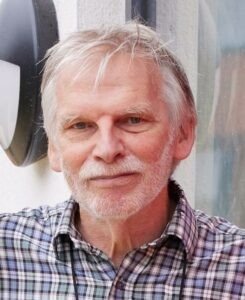
Bill Phelps, Chapeltown Cohousing

Dr Yaell Arbell, Sheffield Hallam University
Bill is a current resident and one of the founding members of Chaco; Yael Arbell, also a resident of Chaco, is a researcher at Sheffield Hallam University and a practitioner in CLH.
Our conversation was inspired by the ‘CLH for all report’ , co-authored by Yael, which explores opportunities and barriers for Black and Ethnic minority groups in CLH, offering recommendations for more racial equity in CLH development.

The Beginnings of Chapeltown Cohousing
Chaco’s story began in 2010, when a Guardian article about Spring Hill Cohousing in Stroud – the first new-build cohousing group in the UK – sparked interest among a group of Chapeltown residents. After visiting Spring Hill and meeting members of another Leeds-based CLH group, LILAC, Bill recalls how motivated a group of friends were to create something similar — tailored to Chapeltown’s unique multicultural and economically diverse context.
From the beginning, the founders knew this couldn’t be a copy-paste model. They needed a shared vision that reflected their local community.


Image (Left): Bristol CLT visit to Springhill Cohousing, Stroud
Image: (RIght) LILAC (Low Impact Living Affordable Community), World Habitat Awards
Building a Community with Shared Values
Chaco was designed to reflect the diversity of Chapeltown. Yael explains how the founding members established a set of core values that they could all agree on: openness, supportiveness, and sustainability.
These values are not just words, in reality, they are the quintessential standards woven into the fabric of daily life at Chaco. For instance, the community holds weekly socials/exercise events with neighbours, fostering a sense of openness, enjoyment and belonging.
Yael recounted a time when she was unwell and neighbours stepped in to care for her family, cook meals, and drive her kids to football. Yael remarked how “everything happened really smoothly because we live in Chaco. If we didn’t live in Chaco, it would’ve been a really stressful day for everyone”.
More values have emerged over time, including inclusivity, privacy, diversity, and environmental stewardship. Each resident connects differently—some prioritise community involvement, others sustainability—but everyone signs up to the same shared ethos.
Inclusivity and Diversity at the Core
One of the key aspects of Chaco is its commitment to inclusivity and diversity. While Chapeltown is home to many African Caribbean and other minority communities, Chaco’s founding group was mostly white and middle class. Bill reflected on the importance of actively reaching out to include and learn from underrepresented voices: “[we] tried to make sure that we were including and listening to what other people were bringing in”.
This effort is ongoing, with a focus on making the Chaco community even more inclusive.

Image: Chapeltown Cohousing
Overcoming Challenges Together
The path to establishing Chaco was not without its challenges. From securing funding to navigating planning permissions, the community faced numerous obstacles.
But early on, when Chaco was just “half a dozen people around a kitchen table” wondering how they were going to grow into a group with the capacity to build, the first barrier to the founding group was the lack of information available on how to develop cohousing.
A conversation with members of LILAC connected them to project manager Jim Reed, who brought the expertise they needed and helped them secure pre-feasibility funding. Reed later became Chaco’s project manager and is now Director of Leeds Community Homes—an organisation much like Communities Creating Homes at Cwmpas.
A major challenge was helping local people understand cohousing.
There was an “awful lot of education to do, explaining the idea of cohousing in an area like Chapeltown,” Bill recalled. “Most cohousing is white and middle class – generally people who’ve got the time and the skills and the money to be able to explore ideas like this, whereas if you’re struggling with the cost of living or maybe if you’re in a group that has its own set of struggles just coping with mainstream UK society, you’re not going to be exposed much to these sort of ideas.” Their solution? Take people to see it in action. Chaco found that the easiest way for them to explain was to take a car full of people and take them over to visit LILAC. After talking to a family living there, people would get it – just like that. Another challenge the community faced was just how long it took until they could move in. Some members had to pull out of the project because it took too long, and they needed to settle down at some point.
Yael noted however that this time was also beneficial to Chaco because that time helped them learn, build their foundations, and get their decision-making in place before the critical stuff began.
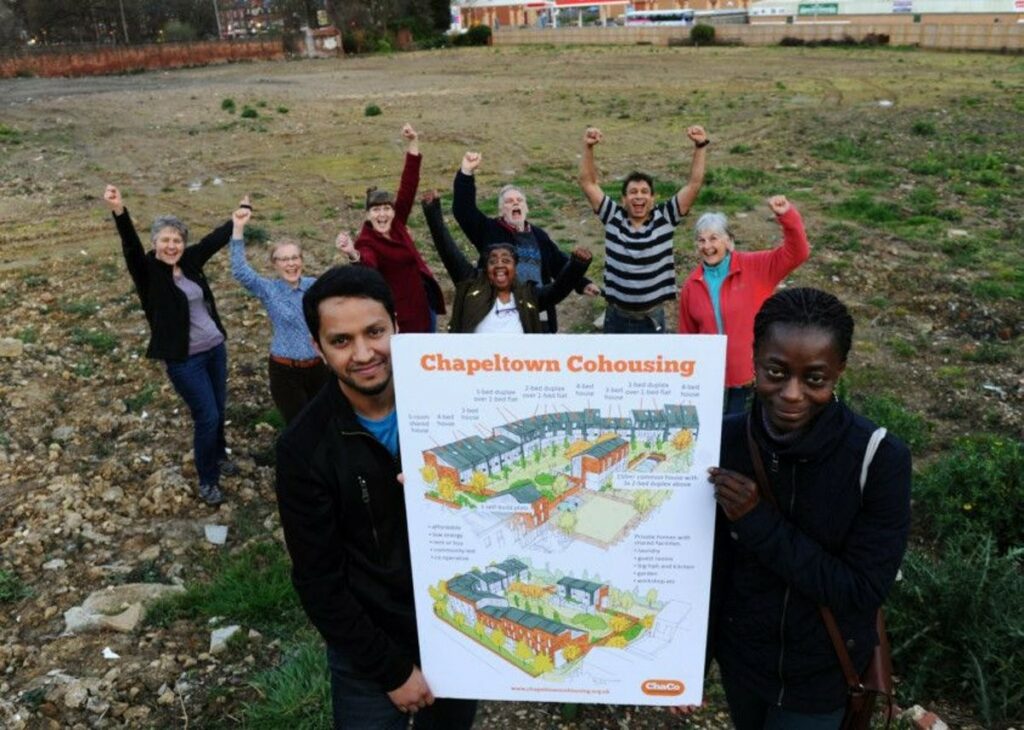
Land on Barrack Road where Chapeltown Co-Housing Project hoped to build homes. Image by Jonathan Gawthorpe
The Power of Community Engagement
Chaco’s success is rooted in strong community engagement. The founding group met weekly, hosted monthly meals open to the public, and organised social events and leaflet campaigns to raise awareness. Bill recalls the hands-on approach: “We did a fair amount of standing around on street corners and handing out leaflets, talking to people or going door to door getting petitions signed. The last one we did I think we got 5000 leaflets printed and we did the whole of Chapeltown and started going into the neighbouring Hare Hills area.”
From polling stations to neighbourhood walks, these efforts steadily built local interest and support for the project.

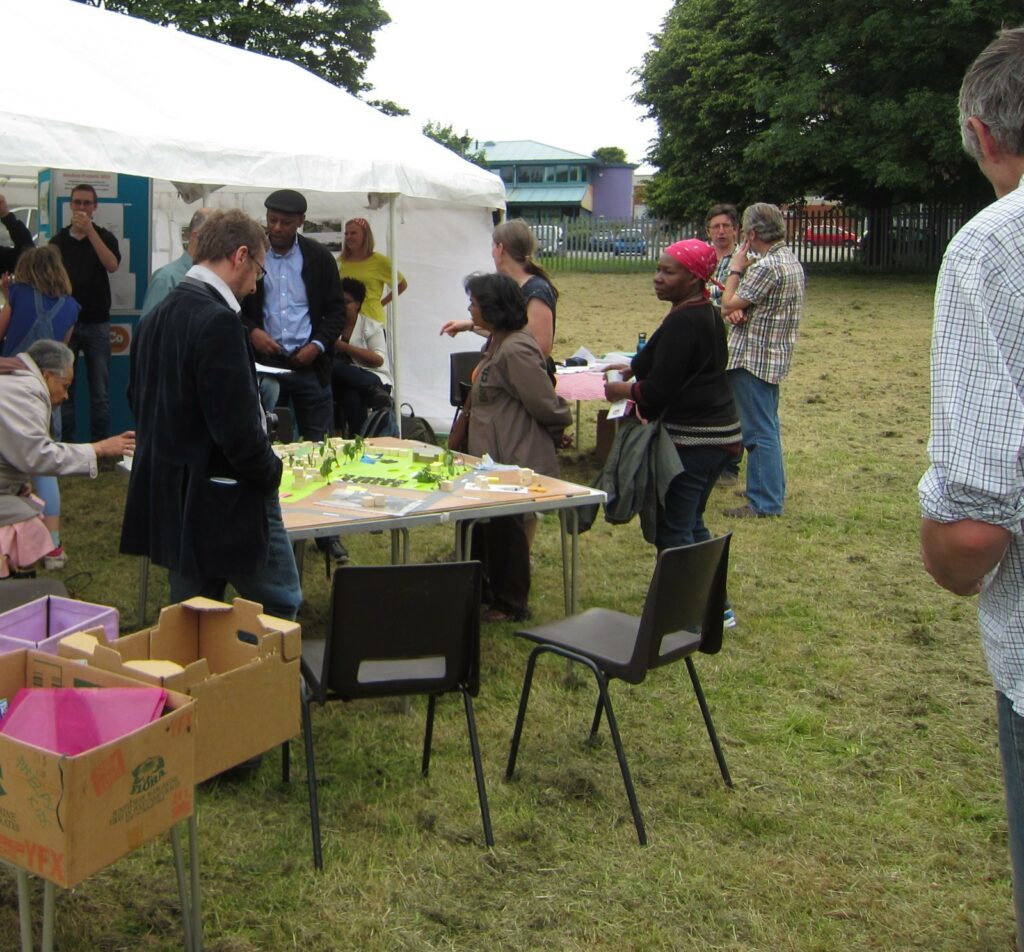
Images: Chapeltown Cohousing’s Design Picnic at Leopold Fields
The Impact of Living at Chaco
Living at Chaco has had a profound impact on its members. For Bill, moving into the new homes has brought opportunities to engage in practical projects —like building a communal workshed, which could become a future Repair Café.
Bill expressed that “a practical job like that, a big DIY, it’s great fun. And with a community like Chaco it’s easier to find the capital to do a project like this that’s costing tens of thousands of pounds, which wouldn’t have been so much of an option or there wouldn’t have been the same need or opportunity to build a communal workshed when we were living in our own house.”
For Yael, the biggest impact has been on wellbeing and community life—especially for families. The car-free environment means children can roam safely and confidently. The strong sense of community and mutual support has created a nurturing environment for all residents.
“It’s a great place to have children in,” Yael reflects. “My six-year-old can just go out and I’m not worried in the slightest, they can be out for an hour and I won’t even flinch, I know they’re fine. And that’s incredible. They meet so many wonderful grownups and its part of the culture now to just confidently approach anyone on the street because they’re all friends and they eat together and they know each other. They have this tribe and that’s really super special. These kinds of community aspects with the young people are just priceless and probably wouldn’t happen on any other street I think. It’s part of the intention that we put into it that made it happen and made it possible.”


Image: Suma Cooperative members’ visit to Chaco for the opening day celebrations
Addressing Equity and Participation
Chaco has worked hard to ensure equity and inclusion through its housing allocation policy, prioritising ethnic diversity, age range, and disability access. But as Yael notes, class representation remains a challenge: “we have people from various genders and ethnicities in the main crucial groups, you know in finance, the legal team, we have that range but in terms of class, the serious professional members tend to be very middle class.”
Affordability was another key concern. The group insisted on including rented units to reflect their values and ensure access for those on lower incomes.
“It would have been easier to just have it all privately owned,” reflected Yael, “but we wanted it to be affordable following our diversity value and that created a whole set of challenges because it’s harder to do something expensive for cheap.”
Bill echoed this, stressing the importance of keeping rents low: “Not many people in this area have capital so we decided that we really need to keep the rents down to no more than local housing allowance. So, if someone was on housing benefits that wouldn’t necessarily exclude them from being a member of Chaco and we managed to hold on to that all the way through and eventually managed to bring the rents down to social housing level which is a lot lower.” While future rent increases may be necessary due to construction setbacks—including two contractors going bust—Chaco remains committed to financial accessibility.
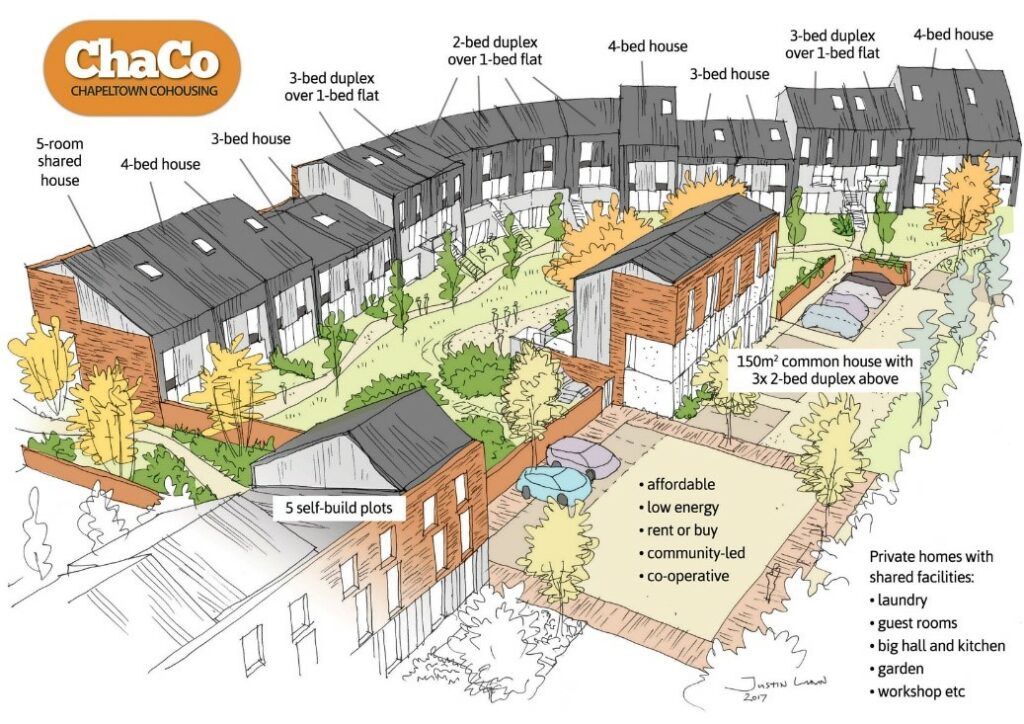
Image: Artist’s Impression of the Chapeltown Cohousing Scheme
Building Relationships and Changing Perceptions
Though initially met with scepticism, Chaco has steadily built trust with both the community and local authorities. Their dedication to Chapeltown helped shift perceptions over time.
Support from local councillors and their MP proved crucial in pushing the project forward. Bill reflected, “With the local MP and councillors on board and the executive level of council eventually saying we want to see this thing happen, that was tremendous.”
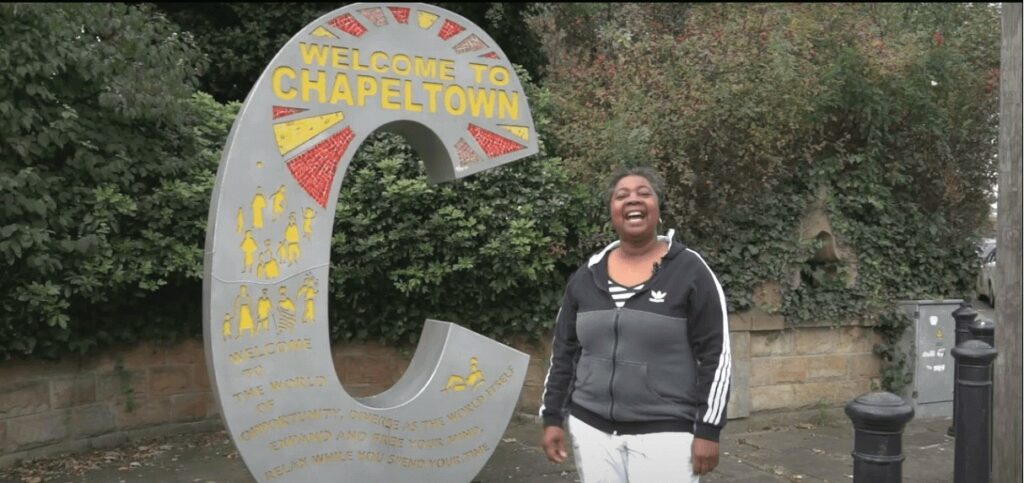
Image: Chapeltown Cohousing: Strength in Diversity, Ecology Building Society
Conclusion
Chapeltown Cohousing stands as a testament to the power of community-led housing to create inclusive, supportive, and sustainable living environments.
By showcasing diverse CLH initiatives like Chaco, we hope to inspire other communities in Wales and beyond to explore the possibilities of CLH. The Communities Creating Homes team at Cwmpas will continue its efforts to help and support groups make their housing dreams a reality and to spotlight these amazing projects -stay tuned!
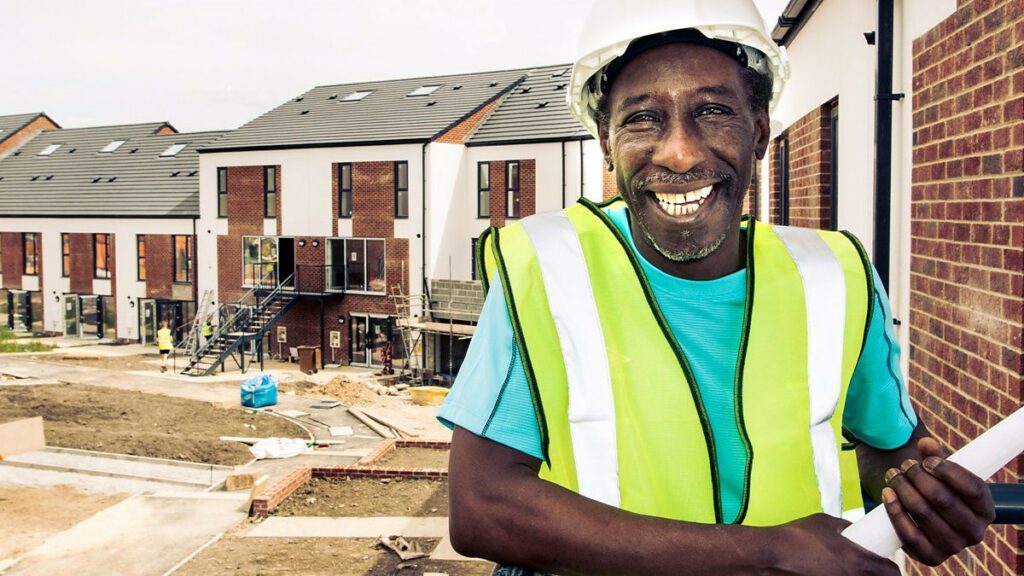
Source: https://www.bbc.co.uk/programmes/m001b826
Call to Action
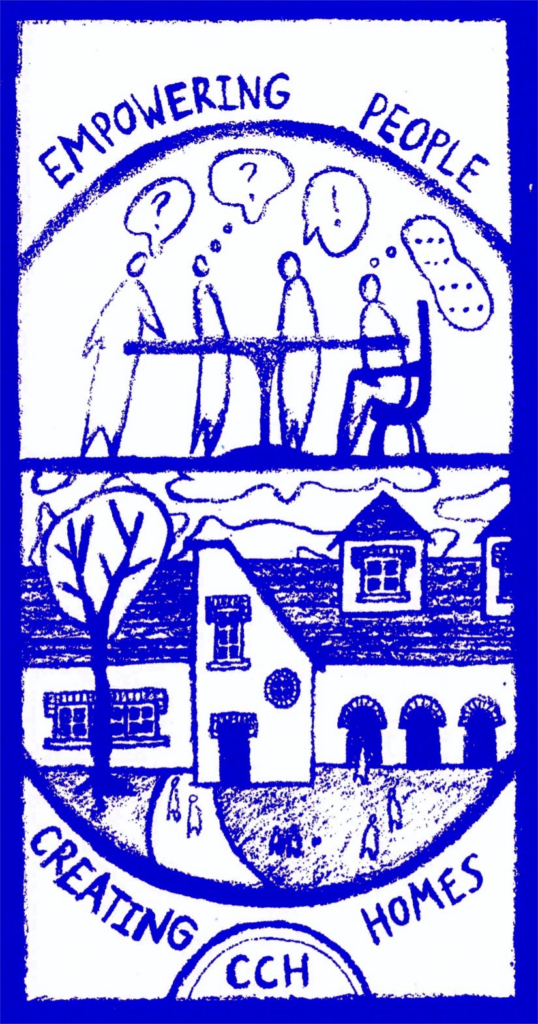
If you are inspired by Chapeltown Cohousing and want to learn more about community-led housing, visit our website at:
or contact us via:
phone 0300 111 5050
email co-op.housing@cwmpas.coop.
Learn more about Chaco from their website:
Join us in celebrating and supporting diverse CLH initiatives. Together, we can create inclusive and sustainable communities for all.









